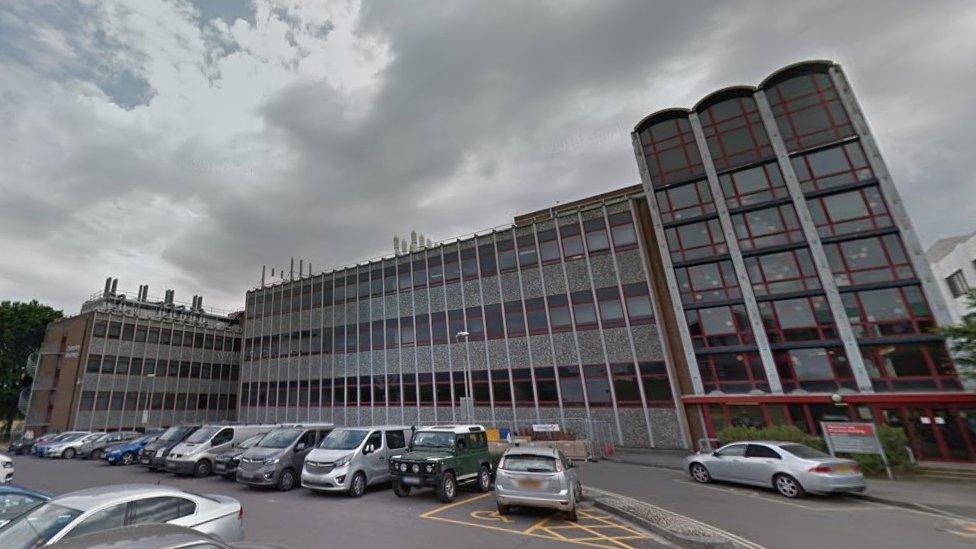University of Reading fruit and veg voucher study launches
- Published
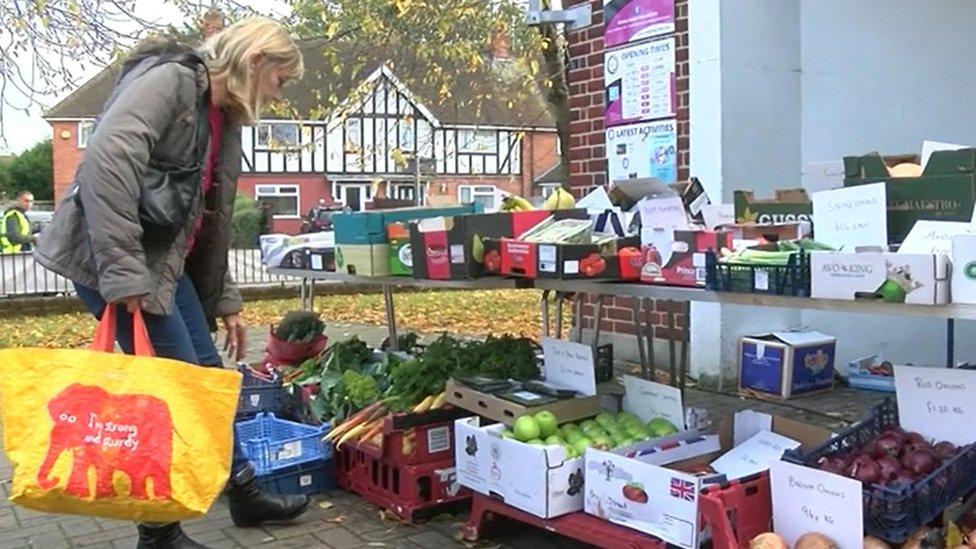
The government-funded project will monitor participants for a year
Scientists are looking into whether fruit and vegetable vouchers could improve the health of poorer families.
The University of Reading has worked with the Whitley Community Development Association (CDA) on the government-funded study.
On Saturday 150 people received a voucher for a greengrocer, while 150 others did not.
Researchers will now monitor changes in their health every three months for a year.
The participants are all from Whitley and the group that were given vouchers will receive £10 every two weeks for 12 months.
They have provided hair and urine samples, and will do so every three months, to give researchers an idea of their health levels.
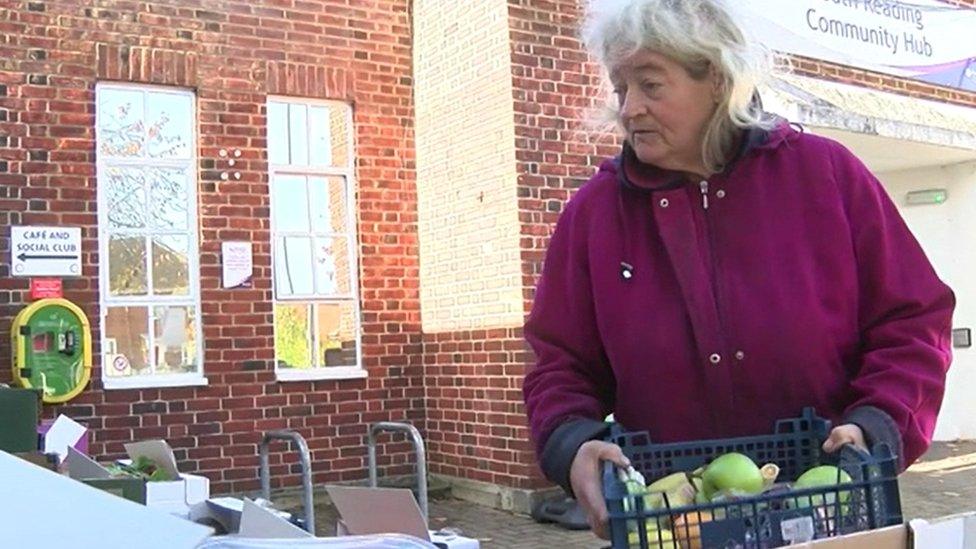
Jacqueline is taking part in the scheme and said she could not afford to buy fruit and vegetables all of the time
Those who were not given a voucher will be paid for their samples.
One participant, Jacqueline, said: "I couldn't afford to buy fruit and veg all the time.
"So coming here and being able to get that fruit and veg, it's a Godsend, an absolute Godsend."
Another, Anne-Marie, said: "I will be more inclined to cook every day because I've got fresh vegetables there, whereas at the moment I'd only cook a couple of times a week really."
Trisha Bennett from Whitley CDA said: "We identified 150 households, so, two or three streets locally, where there's a great need, and they've been given vouchers for the next 12 months.
"It's not about telling people what they should be eating, everybody knows five fruit and veg a day is good for you.
"They know that, they just can't afford it, and this way will make that big difference, and we'll monitor with our colleagues at the university the impact on people's health."
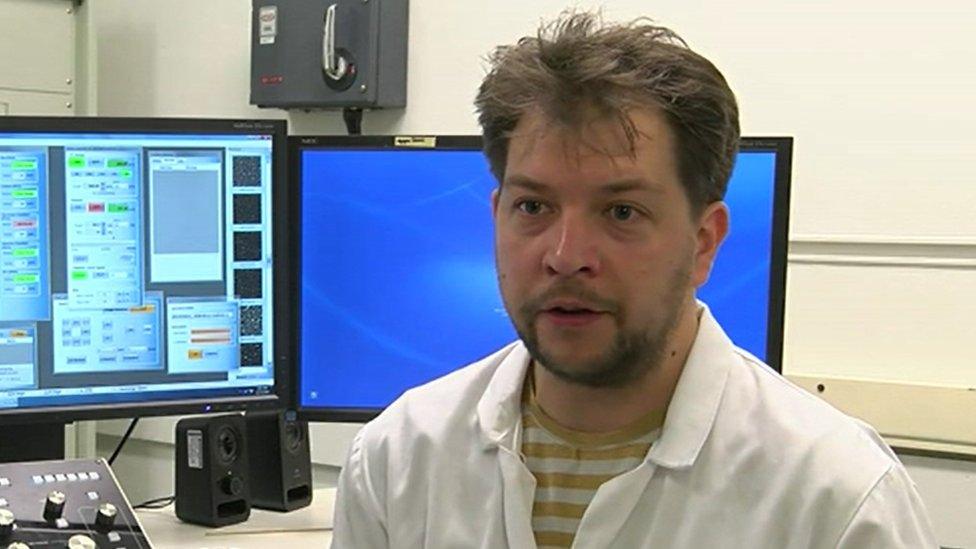
Scientists believe the hair and urine samples will show how fruit and veg vouchers could improve the health of poorer families
University experts took samples from hundreds of people in the area to create a baseline for local people's nutrient and vitamin levels.
Dr Martin Chadwick from the university said: "Hopefully we'll see that people are increasingly eating more fruit and vegetables, and generally eating healthier."
The university has funding for one year for the project and if it is successful it hopes to secure more to run it for longer.

Follow BBC South on Facebook, external, Twitter, external, or Instagram, external. Send your story ideas to south.newsonline@bbc.co.uk, external.
Related topics
- Published11 September 2023
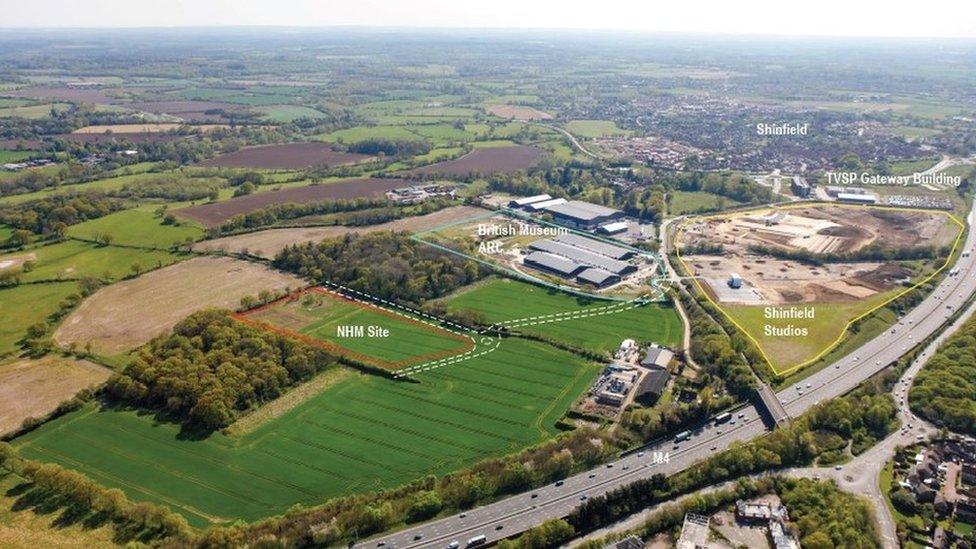
- Published21 June 2023
- Published12 May 2023
